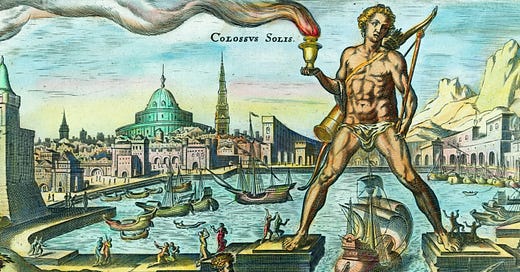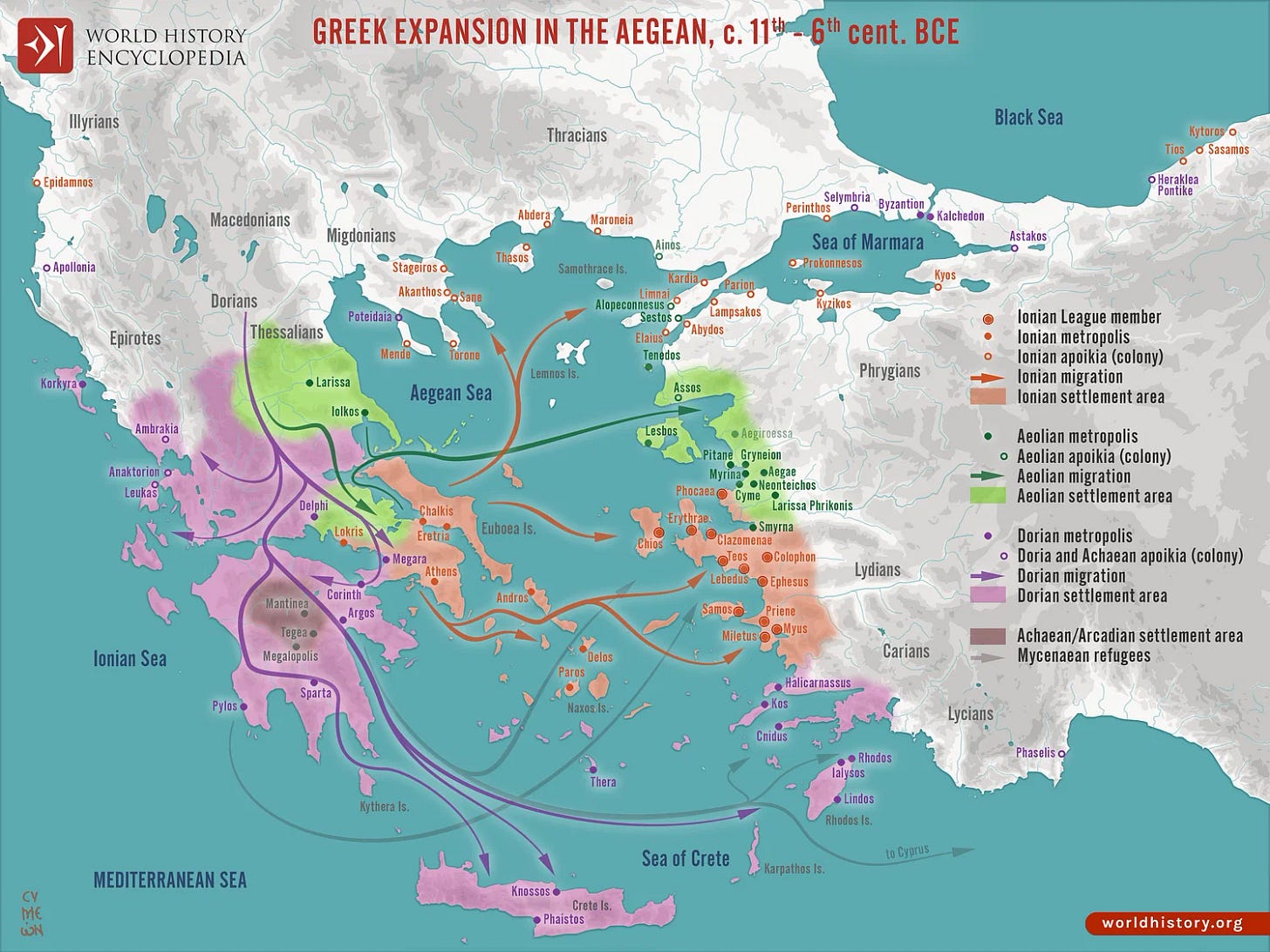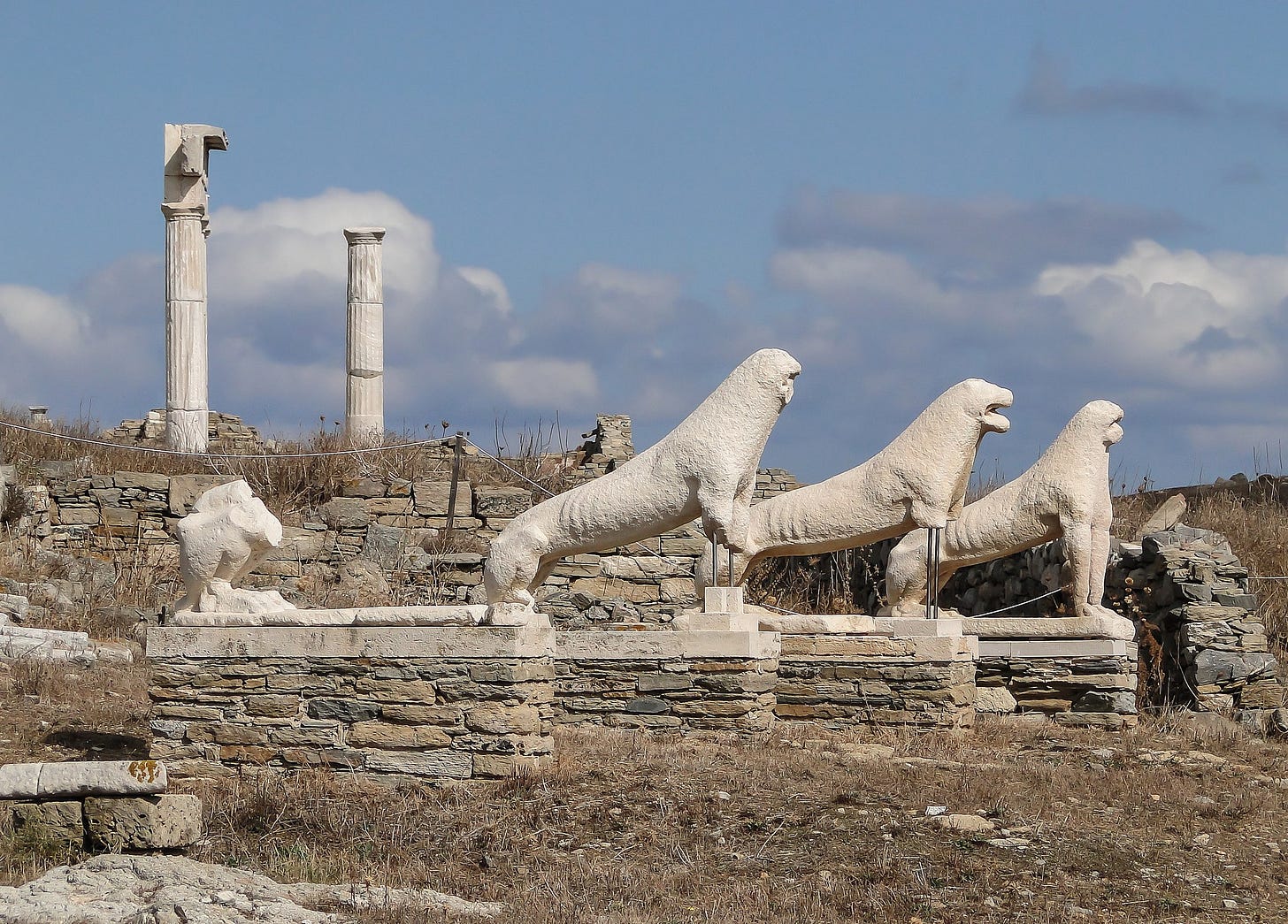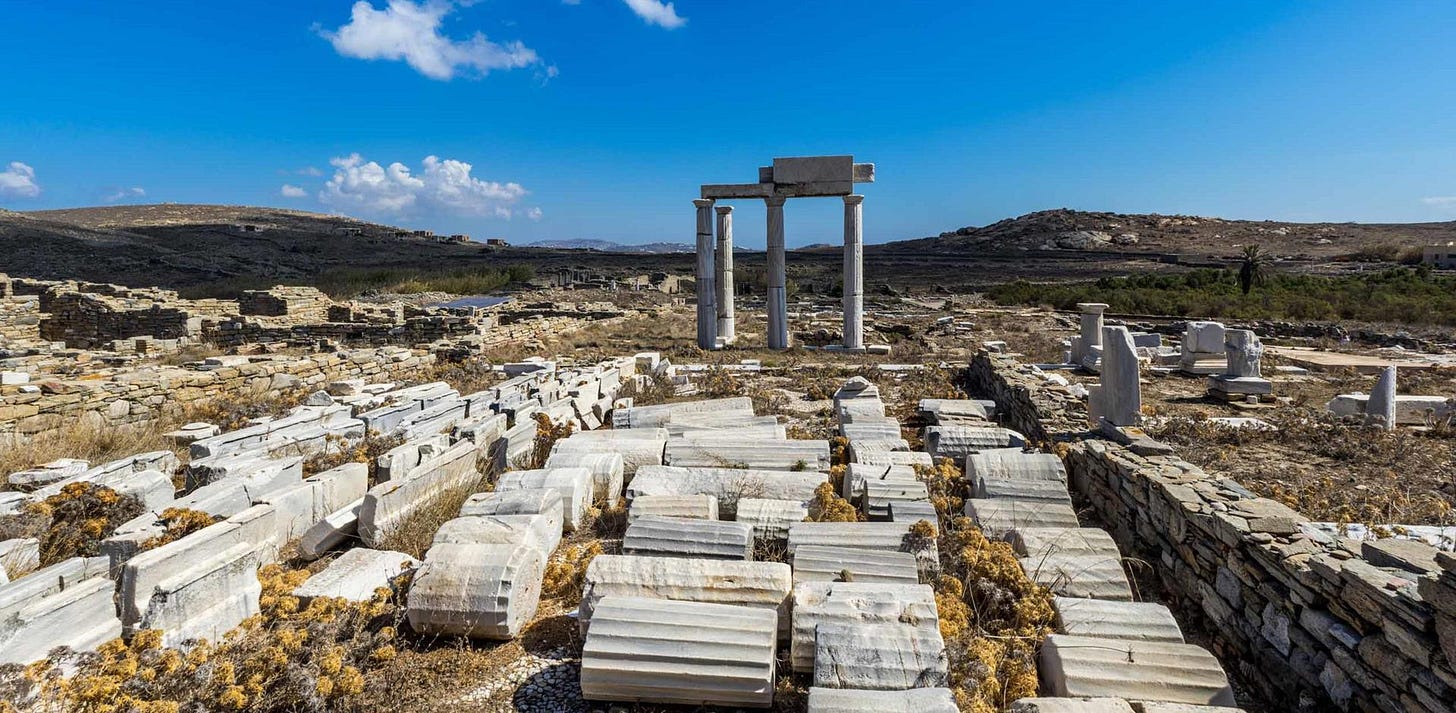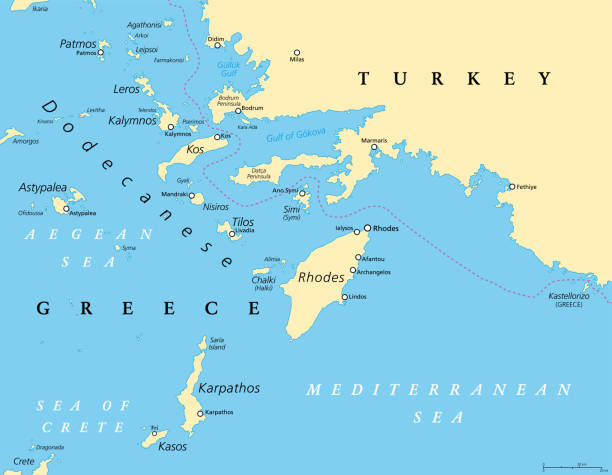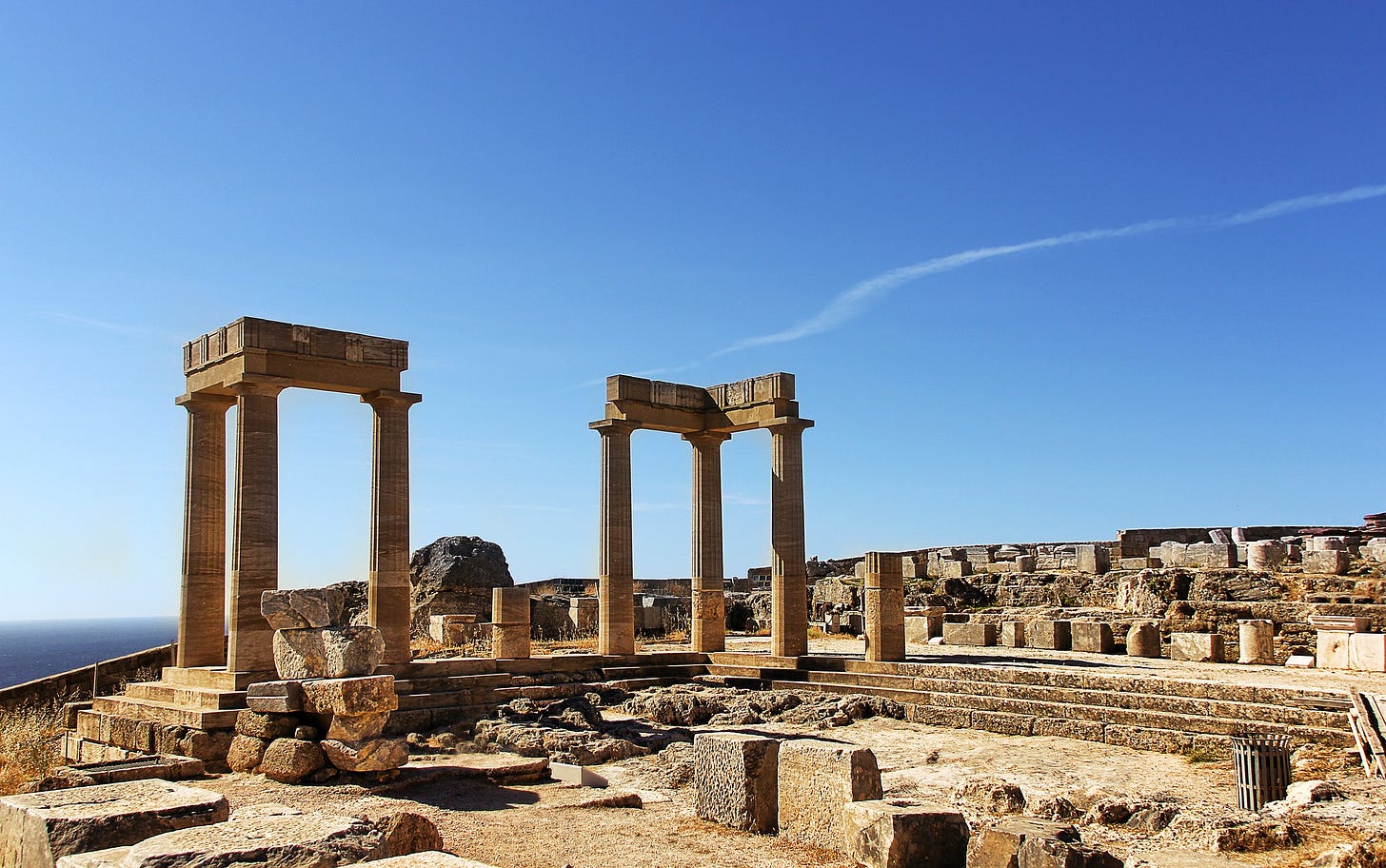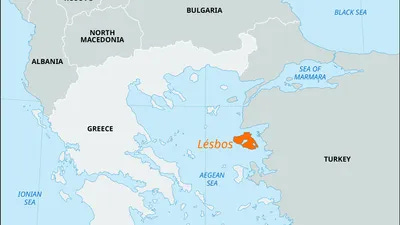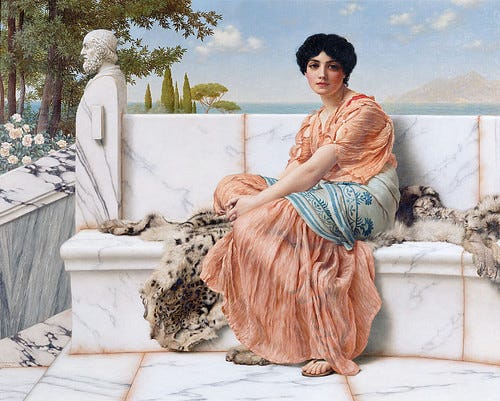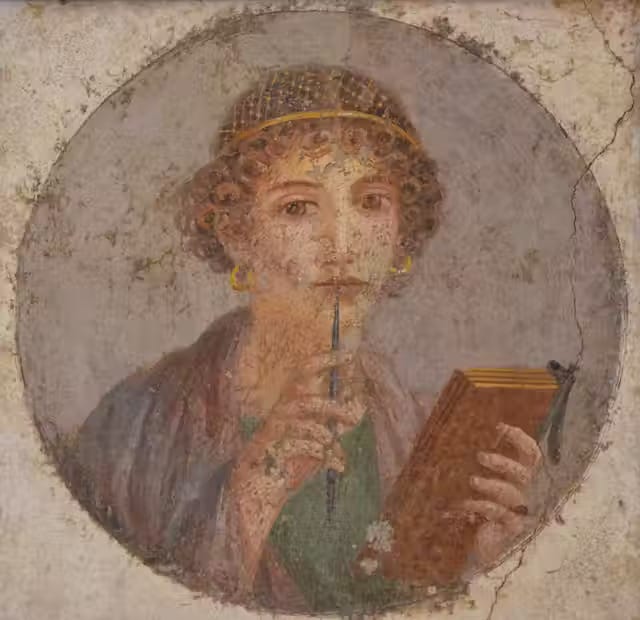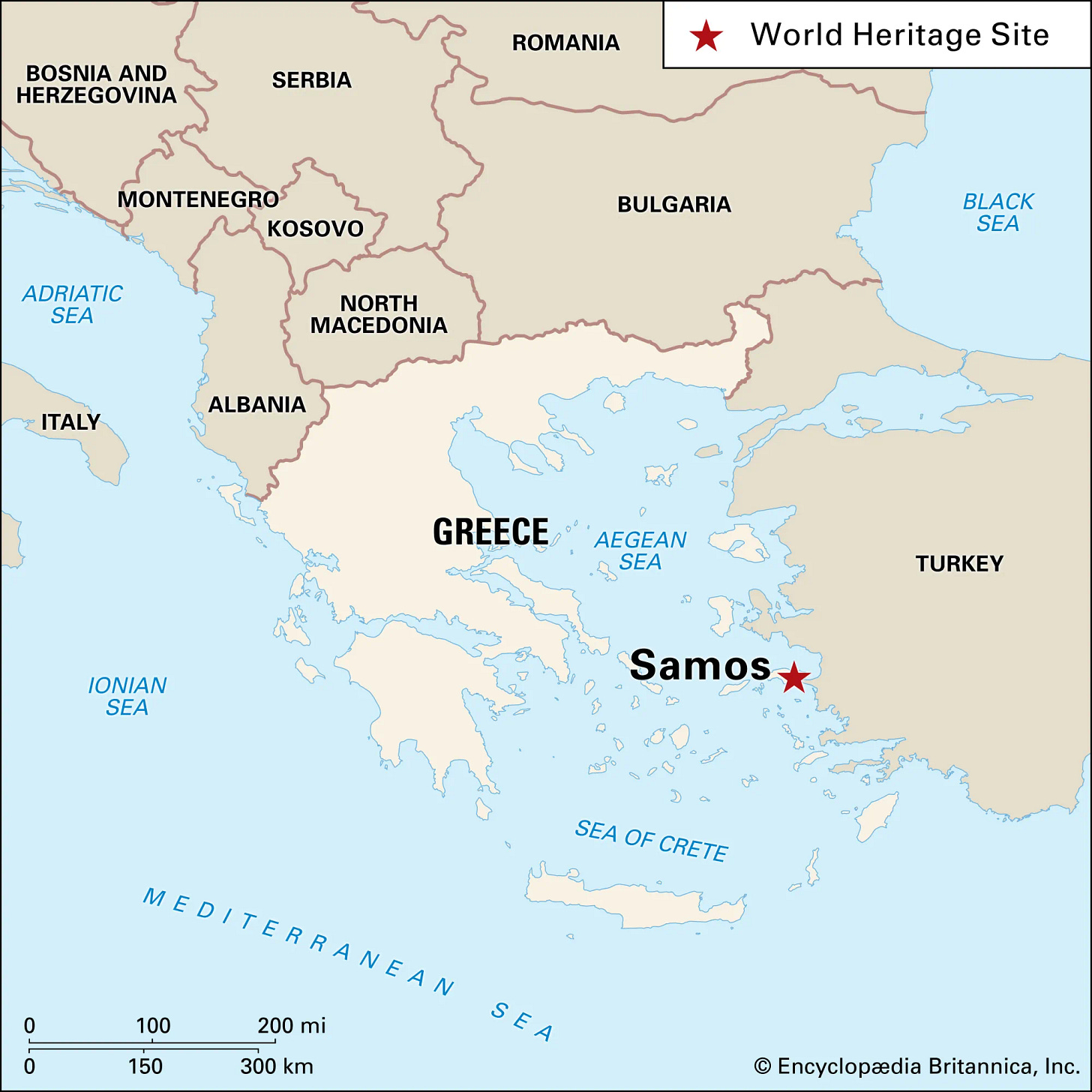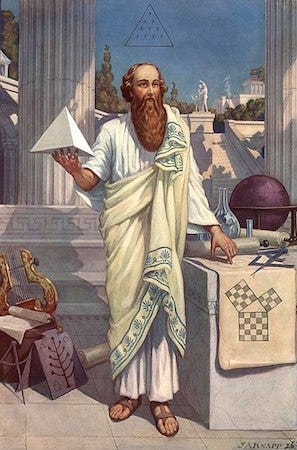4 Amazing Greek Island States of the Classical Era
The little rocks that stand tall amongst the giants of the Ancient World
When you mention the Greek isles today, it will likely conjure up images of sandy beaches on Santorini and Mykonos, white and blue architecture set against stunning sea views, (and probably a bunch of drunk tourists spilling their guts out slightly out of frame). But these islands hold much greater historical significance than the tourist resorts or rocky outcrops we see today. As Plato noted, the Greeks spread around the Aegean Sea like ‘frogs on a pond’ and many of these tiny islands became their own thriving colonies that would grow into independent city states and naval forces in their own right. Today we’ll look at just 4 of these wonderful islands that each played a crucial role in the history and culture of the Classical Age.
Delos - Birthplace of Apollo and Athenian Hegemony
Delos is an island in a group called the Cyclades, a whirlpool of rocks south-east of Athens that features the modern tourist delights of Santorini and Mykonos. Delos today is a rather windswept empty place now, a stark contrast to its incredible history in the Classical Era. It is luckily protected as a UNESCO world heritage site, due to the immense archaeological information that it holds.
In Greek myth and culture, Delos was most famous as the birthplace of the god Apollo, and in some versions, his twin sister Artemis too. As a result, from a very early time it gained a reputation as a holy and sacred place. In fact, this eventually came to be a detriment to its inhabitants; Athens in particular viewed the site as so sacred that in 422 BC they expelled the inhabitants and exhumed all the bodies buried there, so that it could be ‘purified’.
This was not, however, Athens’ most influential role in the island’s history. In 478 BC, shortly after the defeat of the Persian fleet at Salamis, Athens took a bold and radical step in the history of the region. Whereas previously the many city states of the Greek world were divided, relying on friendships or grievances to dictate their relations with other states, Athens proposed a grand ‘defensive’ alliance. This alliance would focus on building up Athens’ strength - their navy - to which its allies would contribute either money or ships, in return for the same navy’s protection from future threats.
This grand alliance was founded and met on Delos and thus became the Delian League. Since the island was sacred, it was the perfect place to store the vast funds they gathered from member states, knowing very few would be tempted to risk the wrath of the gods by stealing from it. This was a tremendous boon for Delos; construction even began on a grand new temple using some of these funds - but it would never be completed. Under Pericles, Athens decided that they deserved a little more of the funds for themselves, and diverted the treasury to be stored instead inside the grand new temple they had built in Athens with those very funds - the Parthenon. The once co-operative Delian League turned into a hegemony, a proto-Empire that would have seen Athens dominate the region, if they were not defeated by Sparta and its own Peloponnesian League in the drawn out conflict known as the Peloponnesian War.
Delos had a rough time after Athens’ betrayal, especially as continual conflicts engulfed the Greek world, with one major city state dominating before being replaced by another. However, when the Romans came along, they declared Delos a free port, which opened it up to its most prosperous period in history. Traders going east, west, north and south, all went through the island, bringing with it all the luxuries and fine goods that we are still finding today in dig sites. Surely this was too good to be true?
Yes. It was. Unfortunately that prosperity attracted the attention of pirates such as Mithridates, the scourge of the Mediterranean and one of Rome’s greatest enemies. Attacked twice in 88 and 69 BC, the island was devastated and never recovered. Trade routes shifted and that newfound prosperity vanished as quickly as it had arrived. It was completely abandoned by the 8th Century AD, and even today with its great archaeological significance, it only boasts a local population in the 20s.
Rhodes - The Colossal Trading City
About as far east as the Greek presence in the Aegean stretched lies the island of Rhodes, among a group known as the Dodecanese Islands. This island, settled by the Dorian colonists from the Peloponnese, was believed in mythology to be the product of a union between the sun god Helios and a nymph, aptly named Rhode, a daughter of Poseidon.
Owing to its extreme south-eastern placement, the island served as an important bridge between the Greek world and the Phoenicians, who inhabited the coastal areas south of Asia Minor, sometimes referred to as the levant. The Phoenicians were a distinctly naval people, famous traders and thus excellent allies for an island like Rhodes. It’s no surprise that much prosperity flowed from this connection, which saw the original six cities combine to form one major city, which they named Rhodes to match the island.
As is so often the case, however, Rhodes’ status and placement brought the attention of the major powers around the Aegean. It was initially conquered by the Persians during their supremacy, but they were soon repelled by the Athenians. After joining the Delian league, Rhodes remained mostly neutral during the Peloponnesian War and eventually left the alliance before their defeat.
Once Alexander the Great swept through this part of the world, he swiftly brought with him the Hellenistic age and the many wars of the successors that followed his death. Rhodes benefited now from a strong alliance with Egypt and the Ptolemies, becoming a new centre for art, philosophy, science and rhetoric. Many famous figures either came from or studied and taught in Rhodes, including the great historian Apollodorus. Later during the Roman period, young aristocratic Romans would visit for their higher education studies; it was on one such voyage that Julius Caesar was captured by pirates, though that’s a story for another time.
Perhaps the most famous thing associated with Rhodes, however, came about essentially by coincidence. In 305-4 BC, one of Alexander’s ‘successors’ Demetrius laid siege to the island, but failed to take it. When the inhabitants discovered that the besiegers had abandoned most of the equipment they had brought, they cannily sold it off for great profit and put the funds gained into building the great Colossus of Rhodes, one of the 7 wonders of the ancient world, to celebrate their victory.
Over 100 feet high by most reckonings, the colossus was a statue of the god Helios, built with an iron structure plated with bronze. It was no doubt an incredible feat of engineering and an equally incredible sight for all those who looked upon it. Construction began in 292 BC and was completed in 280 BC, after which it stood for 54 years until an earthquake damaged the city and saw the statue snap at the knees and collapse. Despite offers from the Ptolemies to rebuild it, the disaster was a seen as a bad omen and it was never again repaired. The remains, however, lasted much longer - 800 or more years by all accounts, and they themselves became a tourist destination of sorts.
Lesbos - Not One, But Two Words!
To the north-east of the Aegean lies one of the larger islands to grace the map, shaped like a triangle with a large chunk taken out of the middle: Lesbos. The island comes with quite the reputation to modern English speakers, as it gives us one of the more striking terms derived from Ancient Greece - lesbian, as it pertains to the love of one woman for another. And this is no coincidence; it is, rather, the direct influence of a singular woman from this very island, whose poetry was so revered that she was sometimes called the ‘Tenth Muse’.
Sappho, the famous lyric poet, is synonymous with the affection one woman has for another which she so beautifully encapsulated in her poetry - so much so that the term sapphic also derives from her name. We know so much about her and yet so little; her influence was so broad and yet very few of her poems survive as much more than fragments, although that lends its own beauty to the pieces we have left. It is undeniable that her love poetry moved countless generations, and the beauty of her words itself has given a voice to many women whose feelings might otherwise have been seen as anything other than beautiful.
Sappho was regarded as one of the 9 great lyric poets of Ancient Greece, yet her contemporary Alcaeus, also from Lesbos, was another of these but gets far less attention. Lesbos’ reputation as a home of artistic talent was surely justified, but it has seen much more in its long history, and not just the many humorous memes like the ‘Lesbian feta’ ones you see today. Settled by the Aeolian Greeks, Lesbos’ proximity to Asia Minor made it an obvious target for Persian expansion, coming under their control in 546 BC. As with many other islands, Lesbos was liberated from Persian control following Salamis and swiftly became a member of the Delian League.
However Mytilene, Lesbos’ largest city, attempted to break away from the league, which led to one of the more incredible stories from Thucydides’ History of the Peloponnesian War. The Athenian assembly, intent on punishing Mytilene for its rebellion, were roused by Cleon to enact the harshest punishment - to kill all the men and enslave the women and children of the island. The message was sent from Athens by sea, but the very next day the assembly, with cooler heads prevailing, decided to reverse the order. Sending the fastest ship available, the message was just able to arrive as the decree was being read out and before it was put into action. The story speaks to the desperation of the time and the fine margins of history.
Samos - The Centre of the Triangle
Sitting about halfway between Lesbos to the north and Rhodes to the south was the island of Samos, a powerful state during the Classical period that served as a centre of trade and innovation for many centuries. Settled by Ionian Greeks, its proximity to Asia Minor allowed Samos to become a major trading hub that would then go on to found its own colonies around the Aegean - Samothrace being the most recognisable. It also developed a fierce rivalry with the mainland city of Miletus, which would spur their growth in the area.
As we have seen several times before, they could not withstand Persian expansion at the height of their influence; however Samos was one of the Ionian states that revolted in 499 BC, an event that would spark the Persian invasions that so fundamentally changed the history of the region. Samos also joined the Delian League and became one of Athens’ strongest allies during its decades long war with Sparta. In fact, during the later stages of the war, which centred on naval campaigns in the eastern Aegean, it became the de facto base of the Athenian navy. Alcibiades, that loveable Athenian rogue, orchestrated a coup in Athens while based on Samos, with the backing of the navy, which saw an oligarchy of 400 take control (for a little while at least.)
As with so many other states, Samos was caught in the horrible game of football that saw ownership of so many places trade hands multiple times within a short span. When Athens lost the Peloponnesian War, Samos came under Spartan control, but was quickly taken by Persia, only for Athens to then regain control. Then along came Alexander and the Macedonians took over, which splintered into the successors’ conflicts, before the Romans came along and settled the deal. The inevitable fate of these small states was to be the pawns of the larger powers, who cared so little about them.
But there’s one more thing that Samos can be proud of, and it all comes down to triangles. That’s right, Pythagoras the mathematician and philosopher sprouted from the soil of Samos and his name has become the bane of students the world over. Little is actually known about his life, and many scholars believe that the attribution of the triangle theory to Pythagoras is a myth. We do know that he had various ideas about numerology and music, but what he was most known for in ancient times was the belief that souls were immortal and escaped the body when you died. This in turn meant that animals had souls too, so could not be eaten. It is even believed that he forbade eating beans as they had a fleshy texture (or perhaps the gas they created was the souls escaping?) but this is likely more historical fiction. So the Pythagoreans were truly the forerunners of modern vegetarians, rather than triangle worshippers as many might think.
Well, that’s about all we have time for on our whirlwind tour of the Aegean but do drop a comment if there are other states, islands or places you’d like to hear more about. See you next time!

